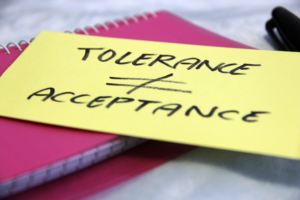Over-sexualization of minority women

An immense part of the struggles minority women face today involve being oversexualized. Without being careful about what one says, the dehumanization of women will continue to be a problem.
October 6, 2017
Although the world may have progressed from the centuries of discrimination that was constantly forced upon minorities, there are still many problems that unfortunately continue to thrive.
A substantial form of discrimination that occurs much too often in every part of the world is the over-sexualization and dehumanization of minority women and women of color.
Latinx women suffer from this greatly. Many times they are seen as sex symbols for men before actual people. No, it is not a compliment to call us latinx woman “exotic,” “spicy,” or “mami,” nor to describe our skin as “dulce de leche,” “caramel-colored,” or to call us “hot tamales.” This only objectifies and dehumanizes latinx women because they are referred and compared to food instead of actual people.
Latinx women also have to suffer from the stereotypes that the media portrays on us. At many points in one’s life, one will come across movies, television shows, and magazines that will showcase many offensive stereotypes that apply to latinx women. Maybe it is the mysterious housemaid that speaks little English with an exaggerated accent that serves the rich family. Perhaps it’s the completely unrealistic, “curvy” woman that the men in the show heavily desire. Her skin that is not too brown, her features are not too indigenous, and she is seen wearing little and tight clothing and constantly yelling. Whichever one of these two main stereotypes audiences see more of, both do the same thing: dehumanize, belittle, and sexualize latinx women.
Asian women are just as dehumanized, hypersexualized and stereotyped. They are stereotyped as “subservient, compliant and eager to please.” This was called the “China Doll” stereotype. It portrays all Asian women as Chinese, which is severely problematic, ignorant, and racist. Rachel Kuo, a writer, scholar, and educator for racial justice and social media activist responded to “this erasure of individualism, in a society that prioritizes individualism as fundamental to humanity” as “a form of dehumanization.” This “China Doll” stereotype was created when hundreds of imported Chinese were sold off as prostitutes or wives to the Chinese men living in San Francisco, California. Many of these prostitutes were sold into this sex trade because of their poverty-stricken families, according to activist Jingwoan Chang.
A search of “Asian women” on Google, yields images will be mostly pornographic and revealing. If one searches up which women are the most sex trafficked they will discover that it is, in fact, Asian women. Fifteen percent of marriages are among juvenile Thai women and Western men 60 or over.
Black women are over-sexualized for their bodies as well. This goes back to the slave trade because of how its “sexual and racial subordination converged around the bodies of enslaved black women,” feminist scholar Adrienne Davis said. She goes on to write about how the system of slavery was forged into a “sexual economy” which resulted in an obsession over the sexualizing of black women that continues to exist to this day.
Dr. Edward Rhymes also writes that black women are dehumanized to the point where they are seen as “bestial, unintelligent, and lust-driven,” a misconception that has been in place since the abolishment of slavery. Blaxploitation, the “exploitation of black people, especially with regard to stereotyped roles in movies,” is another unaddressed problem that has been present since the 1970s. Since its beginning, pre-concieved stereotypes and hyper-sexualization have targeted black women. Even in 2017, 19-year-old Vanessa Ntinu “was approached by males who presumed [she] was a sex worker” in Spain simply because of her body type and race.
In addition to all of these things, saying that “she’s pretty for a black girl” is in no way a compliment. This only highlights the problem of how deeply rooted eurocentric beauty standards are engraved in people’s perspectives. If one wants to compliment a black woman, by all means do so, but do it without giving her a racist and backhanded compliment.
Stereotypes are very dangerous because they grab an extremely diverse community of women and force them into these unrealistic, objectifying and one-dimensional traits.
These names, phrases and obsessions are dehumanizing and reduce women of color and minorities to merely being viewed as sexual objects and food. Instead of calling women these names and using these phrases, compliment them without ostracizing their features or objectifying their bodies.







